So, apologies for a few weeks of radio silence on the CSR Reporting Blog... sometimes that little thing called life just takes over .... but this April Fool's Day joke was too good to miss. It's the publication of the Statement of Common Principles of Materiality of the Corporate Reporting Dialogue in March 2016 which I just noticed yesterday via a Facebook post from eRevalue.
The Corporate Reporting Dialogue is the consortium of the biggies or wannabe biggies in corporate disclosure:
- CDP
- Climate Disclosure Standards Board
- Global Reporting Initiative
- International Accounting Standards Board
- International Integrated Reporting Council
- International Organization for Standardization
- Sustainability Accounting Standards Board
It was established in June 2014 as "an initiative designed to respond to market calls for greater coherence, consistency and comparability between corporate reporting frameworks, standards and related requirements".
So, after almost two years of dialogue, where, we might be inclined to ask, is the greater coherence, consistency and comparability? Aside from more and more connections and linkages and principles and frameworks and standards and indicators and pseudo-dialogue... there is little evidence of coherence, consistency and comparability.. on the contrary, there is more evidence of three different c's: confusion, complexity and conflict. And just to make life fun, yet another document on materiality that looks like more of an April Fool's Day joke than an intelligent response to the needs of reporters and their stakeholder communities appears proudly on our screens.
So, after almost two years of dialogue, where, we might be inclined to ask, is the greater coherence, consistency and comparability? Aside from more and more connections and linkages and principles and frameworks and standards and indicators and pseudo-dialogue... there is little evidence of coherence, consistency and comparability.. on the contrary, there is more evidence of three different c's: confusion, complexity and conflict. And just to make life fun, yet another document on materiality that looks like more of an April Fool's Day joke than an intelligent response to the needs of reporters and their stakeholder communities appears proudly on our screens.
The document is billed as responding to "market demand" in "clarifying reporting
concepts". It starts with a full page introduction to Materiality... which, when boiled down into a couple of sentences, essentially tells us what we already know: what's material is different depending on who you are talking to, and, what is only a bit material now maybe a lot material in the future. Therefore, no-one has a "one-size fits-all" (sic.) definition of materiality but there is a "foundational principle" which is: "material information is any information which is
reasonably capable of making a difference to the conclusions reasonable stakeholders may draw
when reviewing the related information."
Note here that the reference is to "reasonable" stakeholders. Later this is explained as excluding from the reporting focus a "single or atypical stakeholder or one who is behaving unreasonably or irrationally". I wonder what this means? I know all stakeholders weren't created equal, but surely there is some element of stakeholder inclusion that suggests that by definition, a stakeholder (group or individual) is affected by and affects the business of a corporation and therefore has the right to hear and be heard? Who judges what behavior is unreasonable or irrational enough to merit exclusion from the playing ground? GRI's definition of stakeholders does not exclude unreasonable or irrational stakeholders:
So, apart from the fact that companies are encouraged to play nice with nice stakeholders, there's nothing new in this introduction and it kinda reinforces what most of us have already known for a long time - that materiality without due process is subjective, self-serving and manipulable and no-one really wants the inconvenience of proving otherwise. This document makes no reference to the process by which materiality is determined... only what materiality is or should be. As fundamental as materiality is to all things sustainable and reporting, we might have expected that the most invested minds in reporting thought-leadership today might have been able to come up with something more substantive.
Moving quickly onto the document's presentation of the principles. Oops. No principles... just (another) Introduction, Concepts and Application.
Six concepts are presented. I can distill five of them down to the following from the mumbo-jumbo technobabble of this coherent, consistent and comparable (not) document:
Then there's the application. There are five points of guidance which I have distilled down into English:
So, I am wondering, apart from wanting us to have a laugh on April Fool's Day, what earthly purpose does this document fulfil and what are corporate reporters supposed to do with it? More importantly, if it takes two years of meetings, lunches and open dialogue to deliver this, frankly I think everyone should go back to their own corner and campaign for fragmentation, differentiation and splendid isolation. Unless the lunches are unbeatable.
Note here that the reference is to "reasonable" stakeholders. Later this is explained as excluding from the reporting focus a "single or atypical stakeholder or one who is behaving unreasonably or irrationally". I wonder what this means? I know all stakeholders weren't created equal, but surely there is some element of stakeholder inclusion that suggests that by definition, a stakeholder (group or individual) is affected by and affects the business of a corporation and therefore has the right to hear and be heard? Who judges what behavior is unreasonable or irrational enough to merit exclusion from the playing ground? GRI's definition of stakeholders does not exclude unreasonable or irrational stakeholders:
So, apart from the fact that companies are encouraged to play nice with nice stakeholders, there's nothing new in this introduction and it kinda reinforces what most of us have already known for a long time - that materiality without due process is subjective, self-serving and manipulable and no-one really wants the inconvenience of proving otherwise. This document makes no reference to the process by which materiality is determined... only what materiality is or should be. As fundamental as materiality is to all things sustainable and reporting, we might have expected that the most invested minds in reporting thought-leadership today might have been able to come up with something more substantive.
Moving quickly onto the document's presentation of the principles. Oops. No principles... just (another) Introduction, Concepts and Application.
Six concepts are presented. I can distill five of them down to the following from the mumbo-jumbo technobabble of this coherent, consistent and comparable (not) document:
- Report materiality to your most important stakeholders (only) and assume they understand
- Leave out stuff which is not material
- Every company will have to decide how much detail to add in or leave out
- It's OK to include stuff which is not material, as long as it doesn't hide what's material
- Materiality is relative - depends on the context
- Even if a new standard defines something as material, if the reporting company's stakeholders don't think its material, it's OK to ignore it
Then there's the application. There are five points of guidance which I have distilled down into English:
- Materiality requires qualitative judgment, but if it's law, the law prevails
- Managers decide what's material but should take primary stakeholder (investor) input into account
- Relevance of materiality changes over time, so if you've said it once, you can probably ease off in the future
- If you are making estimates when reporting material impacts, take into account the views of your reasonable stakeholders
- When disclosing material information, if you can't measure it, it doesn't count
So, I am wondering, apart from wanting us to have a laugh on April Fool's Day, what earthly purpose does this document fulfil and what are corporate reporters supposed to do with it? More importantly, if it takes two years of meetings, lunches and open dialogue to deliver this, frankly I think everyone should go back to their own corner and campaign for fragmentation, differentiation and splendid isolation. Unless the lunches are unbeatable.
elaine cohen, CSR consultant, Sustainability Reporter, HR Professional, Ice Cream Addict. Author of Understanding G4: the Concise Guide to Next Generation Sustainability Reporting AND Sustainability Reporting for SMEs: Competitive Advantage Through Transparency AND CSR for HR: A necessary partnership for advancing responsible business practices . Contact me via Twitter (@elainecohen) or via my business website www.b-yond.biz (Beyond Business Ltd, an inspired CSR consulting and Sustainability Reporting firm). Need help writing your first / next Sustainability Report? Contact elaine: info@b-yond.biz






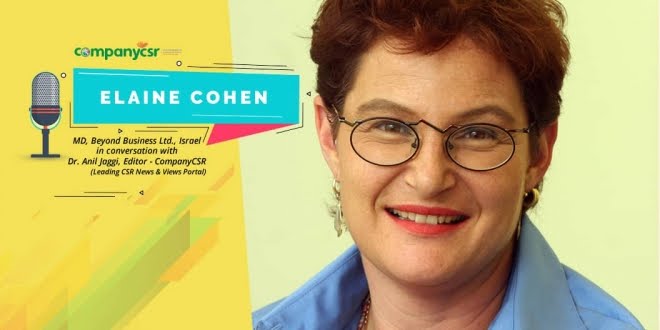
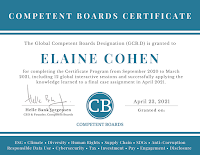


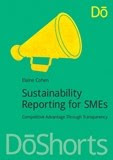
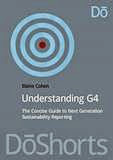
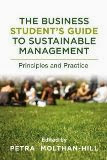
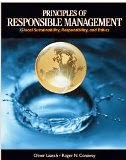
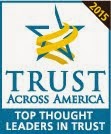










No comments:
Post a Comment